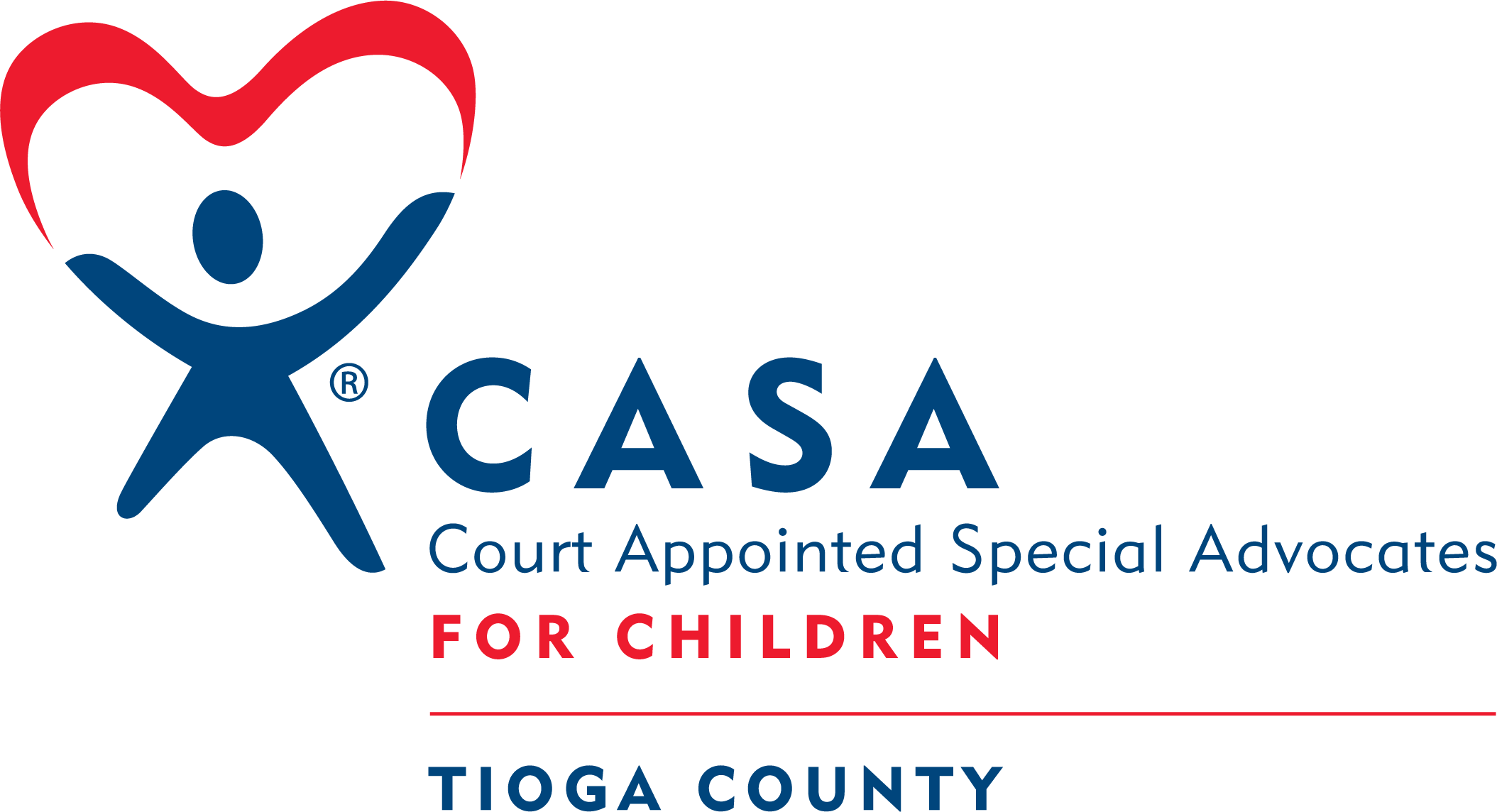
Addressing trauma
- Cases assigned to a CASA/GAL volunteer tend to involve the most serious cases of maltreatment, in which the children were more at risk.1
- A child with a CASA/GAL volunteer has significantly less placements than a child without a CASA/GAL volunteer.2
- Judges report the impact of CASA/GAL volunteers is most pronounced in “promoting long-term well-being” (92.2%), followed by “appropriate services to child and family” (83%) and “psychological well-being” (79.9%).3
- CASA/GAL volunteers are highly effective in getting their recommendations accepted in court. In four out of five cases, all or almost all CASA/GAL volunteer recommendations are accepted.4
- Over 93% of judges report a very positive overall experience with the CASA/GAL program.5

Reaching permanent homes
A child with a CASA/GAL volunteer is:

Well-being over time
- When a CASA/GAL volunteer is assigned, a higher number of services are ordered for children and families.10
- A child with a CASA/GAL volunteer is more likely to have better outcomes: children tended to perform better academically and behaviorally in school as measured by whether or not they passed all of their courses, whether or not they were expelled, and their conduct performance.11
- Children and youth assigned a CASA/GAL volunteer reported significantly higher levels of hope. A child’s hope has been linked to numerous positive outcomes such as academic success, overall wellbeing, increases in self-control, positive social relationships and optimism.12
- Caliber Associates, National CASA Association Evaluation Project, Caliber Associates; Fairfax, Virginia. 2004.
Office of the Inspector General Report, US Department of Justice Office of the Inspector General. Audit Report Results for CASA Advocacy. Washington, DC. January, 2007. - Calkins, C.; Millar, M. The Effectiveness of Court Appointed Special Advocates to Assist in Permanency Planning. Child and Adolescent Social Work Journal. 1999.
Gershun, Martha, and Claire Terrebonne. Child welfare system interventions on behalf of children and families: Highlighting the role of court appointed special advocates. Current problems in pediatric and adolescent health care. Volume 9. 2018.
Leung, P. Is the Court-Appointed Special Advocate Program Effective? A Longitudinal Analysis of Time Involvement and Case Outcomes. Child Welfare League of America. 1996 - Weiner, D., Farrell, A., Gitlow, E., Small, L., Kim, K., Anderson, C., & Goerge, R. The Court Appointed Special Advocate (CASA) Program: Judicial Perspectives Survey and the Path to Evidence. Chapin Hall at the University of Chicago: Chicago, IL. 2020.
- Caliber Associates, National CASA Association Evaluation Project, Caliber Associates; Fairfax, Virginia. 2004.
Gershun, Martha, and Claire Terrebonne. Child welfare system interventions on behalf of children and families: Highlighting the role of court appointed special advocates. Current problems in pediatric and adolescent health care, Volume 9. 2018. - Weiner, D., Farrell, A., Gitlow, E., Small, L., Kim, K., Anderson, C., & Goerge, R. The Court Appointed Special Advocate (CASA) Program: Judicial Perspectives Survey and the Path to Evidence. Chapin Hall at the University of Chicago: Chicago, IL. 2020.
- Office of the Inspector General Report, US Department of Justice Office of the Inspector General. Audit Report Results for CASA Advocacy. Washington, DC. January, 2007.Poertner, J., & Press, A. Who best represents the interests of the child in court? Child Welfare: Journal of Policy, Practice, and Program.1990.
Abramson, Shareen. Use of court-appointed advocates to assist in permanency planning for minority children. Child Welfare: Journal of Policy, Practice, and Program.1991.
Calkins, C.; Millar, M. The Effectiveness of Court Appointed Special Advocates to Assist in Permanency Planning. Child and Adolescent Social Work Journal. 1999.
Gershun, Martha, and Claire Terrebonne. Child welfare system interventions on behalf of children and families: Highlighting the role of court appointed special advocates. Current problems in pediatric and adolescent health care, Volume 9. 2018. - Calkins, C.; Millar, M. The Effectiveness of Court Appointed Special Advocates to Assist in Permanency Planning. Child and Adolescent Social Work Journal. 1999.
Gershun, Martha, and Claire Terrebonne. Child welfare system interventions on behalf of children and families: Highlighting the role of court appointed special advocates. Current problems in pediatric and adolescent health care, Volume 9. 2018. - Abramson, Shareen. Use of court-appointed advocates to assist in permanency planning for minority children. Child Welfare: Journal of Policy, Practice, and Program. 1991.
- Poertner, J., & Press, A. Who best represents the interests of the child in court? Child Welfare: Journal of Policy, Practice, and Program. 1990.
Abramson, Shareen. Use of court-appointed advocates to assist in permanency planning for minority children. Child Welfare: Journal of Policy, Practice, and Program. 1991. - Caliber Associates, National CASA Association Evaluation Project, Caliber Associates; Fairfax, Virginia. 2004.Office of the Inspector General Report, US Department of Justice Office of the Inspector General. Audit Report Results for CASA Advocacy. Washington, DC. January, 2007.
Poertner, J., & Press, A. Who best represents the interests of the child in court? Child Welfare: Journal of Policy, Practice, and Program. 1990.
Litzelfelner, P. The Effectiveness of CASAs in Achieving Positive Outcomes for Children. Child Welfare League of America. 2000.
Gershun, Martha, and Claire Terrebonne. Child welfare system interventions on behalf of children and families: Highlighting the role of court appointed special advocates. Current problems in pediatric and adolescent health care, Volume 9. 2018.
Peters, C.; Claussen Bell, K.; Zinn, A.; George, R.; Courtney, M. Continuing in Foster Care Beyond Age 18: How Courts Can Help. Chicago: Chapin Hall at the University of Chicago. 2008. - Waxman, H.; Houston, R.; Profilet, S.; Sanchez, B. The Long-Term Effects of the Houston Child Advocates, Inc., Program on Children and Family Outcomes. Child Welfare. 2009.
- Stanley, Jessica, and Chan M. Hellman. Nurturing Hope Among Children Experiencing Abuse & Neglect: Examining the Effects of CASA Volunteers. 2019.
